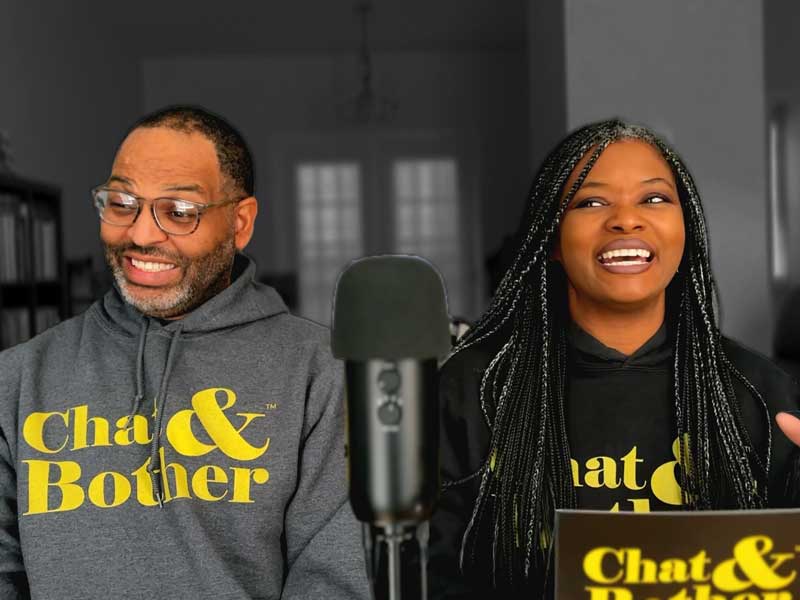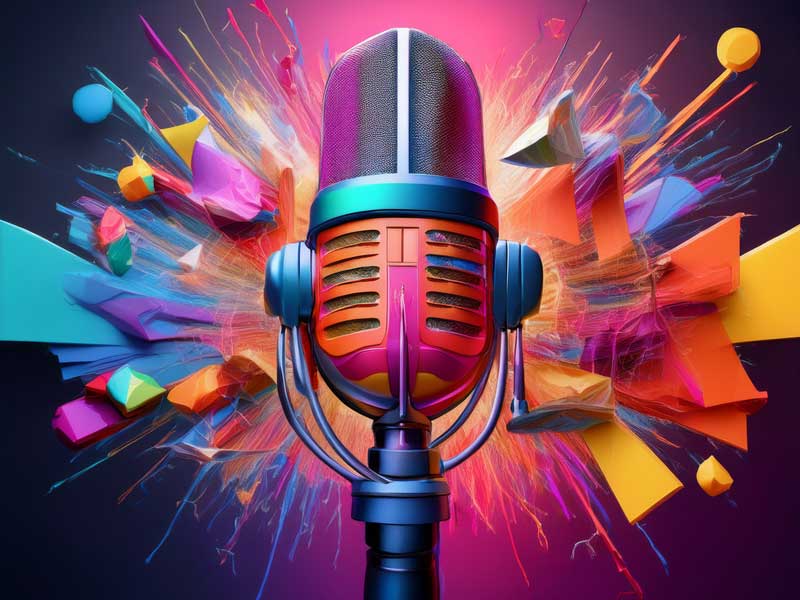You’ve come up with your podcast concept, your recording equipment is set up, and you’re ready to get started. Before you hit that “publish” button, there’s still one more decision you need to make: when should you release your podcast episodes? Daily? Weekly? Monthly? What will your audience expect based on the type of podcast that you produce? Whatever you choose comes with its own set of pros and cons. Breaking those down and categorizing your podcast will help you find the rhythm that works best for you and your podcast audience.
Daily Releases:
Producing a daily podcast is a serious undertaking. Recording, editing, publishing, and promoting a daily podcast takes a lot of work and will have many moving parts. Podcasts that produce daily content often fall into categories that benefit from frequent updates, timely information, or ongoing engagement with their audience. These podcasts become part of the audience’s daily routine. Here are some types of podcasts commonly known for daily releases:
- News and Current Events: Podcasts focused on delivering the latest news, updates, and analysis often produce daily episodes to keep their audience informed in real-time.
- Daily Talk Shows: Shows featuring interviews, discussions, or commentary on various topics may opt for daily releases to maintain audience engagement and provide fresh content daily.
- Daily Devotionals or Inspirational Podcasts: Religious or spiritual podcasts that offer daily devotionals, meditations, or inspirational messages cater to listeners seeking daily guidance or motivation.
- Sports Commentary: Podcasts covering sports news, game analysis, and discussions often release daily episodes to keep up with the fast-paced world of sports and provide timely insights to fans.
- Comedy Shows: Some comedy podcasts may produce daily content, offering short sketches, comedic monologues, or daily doses of humor to entertain their audience on a regular basis.
- Bite-Sized Educational or Learning Podcasts: Podcasts focused on education, self-improvement, or learning new skills may release daily episodes to provide bite-sized lessons, tips, or exercises for listeners.
- True Crime Podcasts: True crime podcasts that cover ongoing cases or go into into detailed investigations may opt for daily releases during special events or significant developments in cases.
- Financial News and Analysis: Podcasts focusing on financial news, stock market updates, and investment advice may produce daily episodes to keep investors informed about market trends and economic developments.
- Health and Wellness: Podcasts offering daily health tips, fitness routines, or mindfulness exercises cater to listeners looking for daily guidance and support in their wellness journey.
- Pop Culture and Entertainment: Podcasts covering celebrity news, movie reviews, or pop culture trends may produce daily episodes to stay current with the latest happenings in the entertainment world.
While daily podcast production can be demanding, it offers opportunities for increased audience engagement and a more dynamic relationship with listeners. That sounds awesome, right? However, especially if you are a new podcaster, it is important for you to carefully consider your capacity for consistent content creation. Do you have a team? Is this your full-time gig? Is a daily release schedule sustainable considering the research and production that may go into each episode?
Pros:
- High Engagement: Daily episodes provide frequent opportunities for engagement with your audience, keeping them invested in your content. This is an opportunity for consistent feedback.
- Increased Visibility: Releasing content daily can help your podcast stand out in crowded spaces and attract more attention. Standing out is key as more and more podcasts are launched.
- Variety: Daily releases allow you to experiment with different formats, topics, and styles, keeping your content fresh and diverse. If you get bored easily, this is the frequency for you.
Cons:
- Time Intensive: Producing daily episodes requires a significant time commitment, from recording to editing and promotion, which may not be sustainable.
- Audience Fatigue: Releasing content daily can overwhelm your audience, leading to fatigue and potential disengagement. If they miss an episode, depending on the length of your episodes, it may be hard for them to catch up.
- Content Quality Sacrifice: Maintaining a high level of quality with daily releases can be challenging, leading to rushed or less polished episodes. More savvy audiences are expecting polished content, even if it is a daily program.
Weekly Releases:
We chose weekly releases because it gives us time to edit and promote new episodes. Both of us are busy parents and entrepreneurs, so we have to make sure that we have time to produce quality content and engage with followers. It is important to consider your capacity when choosing your podcast release frequency. For us, a daily show would have been overwhelming. Podcasts that produce weekly content often fall into categories that benefit from a slower release schedule due to the nature of their content or the production process involved. Here are some common types of podcasts that typically release on a weekly basis:
- Short Interview Shows: Podcasts featuring interviews with guests often release weekly episodes due to the time required to schedule, conduct, and edit interviews.
- Storytelling/Narrative Podcasts: Narrative-driven podcasts, such as true crime, fiction, or documentary series, often release new episodes weekly to allow ample time for research, writing, and production.
- Longer Educational/Instructional Podcasts: Podcasts focused on teaching or providing informative content often release weekly episodes to allow listeners time to digest and apply the information provided in each episode.
- Discussion/Debate Shows: Podcasts centered around discussions, debates, or analysis of various topics may release weekly episodes to give hosts and listeners time to explore each subject in depth.
- News/Current Events Podcasts: While some news podcasts may release daily updates, others opt for a weekly format to provide a more comprehensive analysis of the week’s top stories or trends.
- Comedy/Entertainment Shows: Comedy podcasts and other entertainment-focused shows may release weekly episodes to give hosts time to brainstorm and develop new content while maintaining a consistent schedule for their audience.
- Health/Wellness Podcasts: Podcasts focusing on health, fitness, mental wellness, or personal development often release weekly episodes to provide listeners with regular encouragement, advice, and tips for improvement.
- Review/Recap Shows: Podcasts that review or recap TV shows, movies, books, or other forms of media may release weekly episodes to coincide with the release schedule of the content they are discussing.
- Cultural/Pop Culture Shows: Podcasts exploring cultural trends, pop culture phenomena, or niche interests may release weekly episodes to keep listeners up to date with the latest developments and discussions within their chosen topic.
- Travel/Adventure Shows: Podcasts featuring travel stories, destination guides, or outdoor adventures often release weekly episodes to share new experiences and insights with their audience on a regular basis.
Pros:
- Consistency: Weekly episodes provide a regular schedule for your audience, keeping them engaged and coming back for more.
- Opportunity for Growth: Releasing episodes weekly allows you to steadily build your audience over time and maintain momentum.
- Flexibility: With a week between episodes, you have time to plan and create high-quality content without feeling rushed.
Cons:
- Time Commitment: Producing weekly episodes requires consistent effort and time investment, from recording to editing and promotion. Even weekly shows can fall behind.
- Burnout Risk: Keeping up with a weekly schedule can be exhausting, leading to burnout. To combat this, we have seasons and take a hiatus at the start of the year.
- Content Quality: Maintaining a high standard of quality can be challenging when producing content on a tight schedule. Listeners will also expect higher-quality episodes if they are tuning in weekly.
Monthly Releases:
There are very popular podcasts that only release new episodes monthly. Podcasts that produce monthly content often fall into categories that prioritize in-depth analysis, research, storytelling, or specialized knowledge. Some types of podcasts that commonly release monthly episodes are:
- Long-Form Interview Shows: These podcasts feature in-depth conversations with guests, allowing ample time for exploration and reflection on various topics.
- Narrative or Documentary Series: Podcasts that tell serialized stories or explore complex topics often require extensive research, writing, and production time, making monthly releases more practical.
- Educational or Investigative Podcasts: Shows on specific subjects, such as history, science, or true crime, may release monthly episodes to ensure thorough research and accurate reporting.
- Specialized Niche Podcasts: Podcasts catering to niche interests, hobbies, or industries may have a smaller audience but provide valuable, in-depth content that is worth waiting for each month.
- Audio Essays or Commentary Shows: Podcasts featuring thoughtful commentary, essays, or personal reflections may opt for monthly releases to allow time for crafting and refining each episode.
- Limited Series or Seasonal Shows: Podcasts that produce content in seasons or limited series formats may release episodes monthly to maintain quality while allowing for breaks between seasons.
- Performance or Fictional Podcasts: Shows featuring scripted performances, storytelling, or fictional narratives may release episodes monthly to ensure high-quality production and storytelling.
- Magazine-Style Shows: Podcasts that cover multiple topics or segments within each episode, similar to a magazine format, may release monthly to provide comprehensive coverage of current events or trends.
- Analysis Shows: Podcasts that analyze complex topics, theories, or cultural phenomena may release monthly episodes to allow hosts and guests sufficient time for research and discussion.
- Community or Panel Discussions: Podcasts that involve multiple hosts or panel discussions on various topics may release monthly episodes to accommodate scheduling conflicts and ensure all participants can contribute fully to each episode.
Pros:
- Quality Over Quantity: Releasing episodes monthly allows you to focus on creating high-quality content without the pressure of a tight schedule.
- Sustainability: Monthly releases provide more time for planning, recording, and editing, reducing the risk of burnout.
- Anticipation: The longer wait between episodes can build anticipation and excitement among your audience, leading to increased engagement.
Cons:
- Less Visibility: Releasing episodes monthly may result in less frequent interaction with your audience, potentially reducing visibility and growth.
- Less Consistency: Monthly releases can make it harder to maintain regular engagement with your audience and keep them coming back for more.
- Slower Growth: With fewer episodes released per month, it may take longer to build your audience and establish your podcast’s presence in the market.
The decision of when to release podcast episodes depends on your goals, resources, and audience preferences. We took our lifestyle, personalities, and work schedules into consideration when we chose our publishing frequency. Whether you opt for weekly, daily, or monthly releases, consistency, quality, and audience engagement should remain your top priorities. You can experiment with different frequencies, gather feedback from your listeners, and find the rhythm that best suits your podcast and its unique voice.






